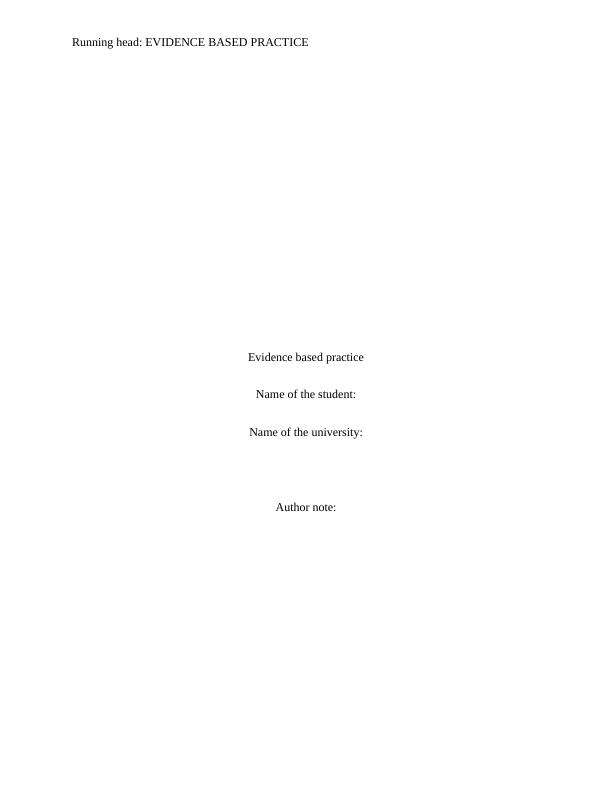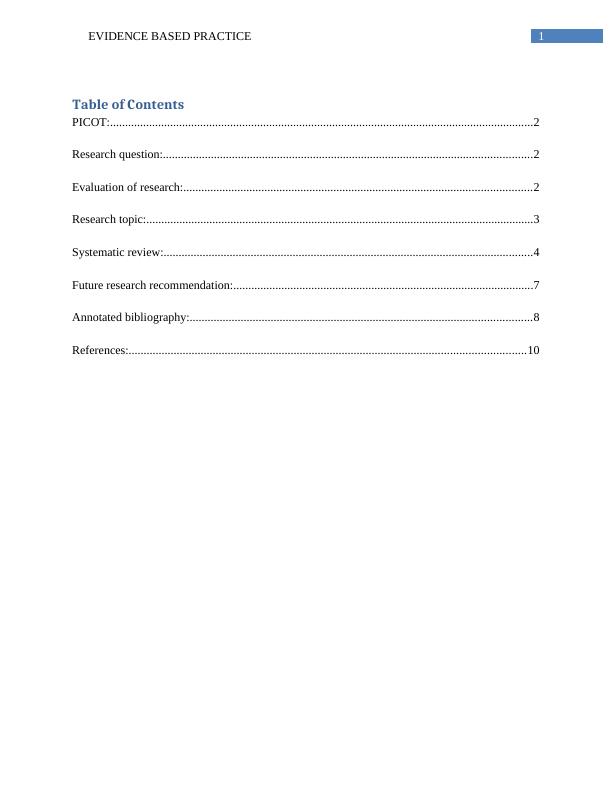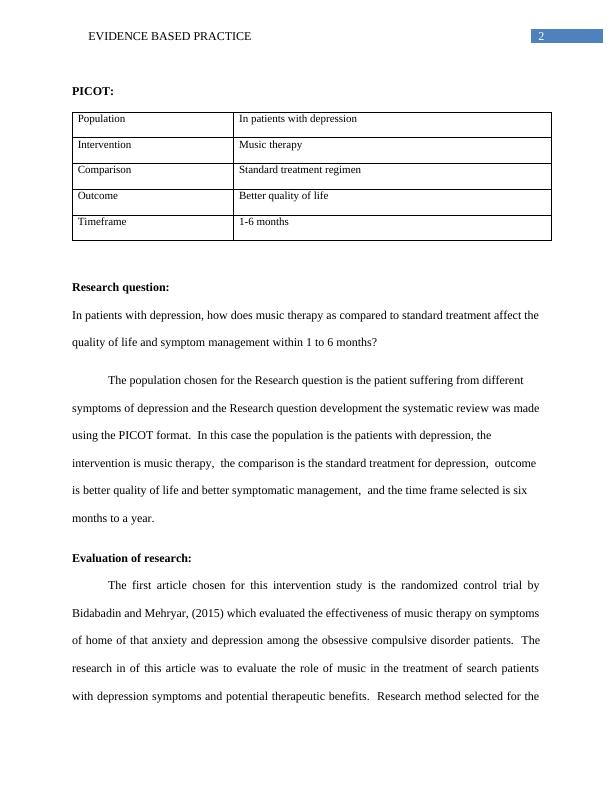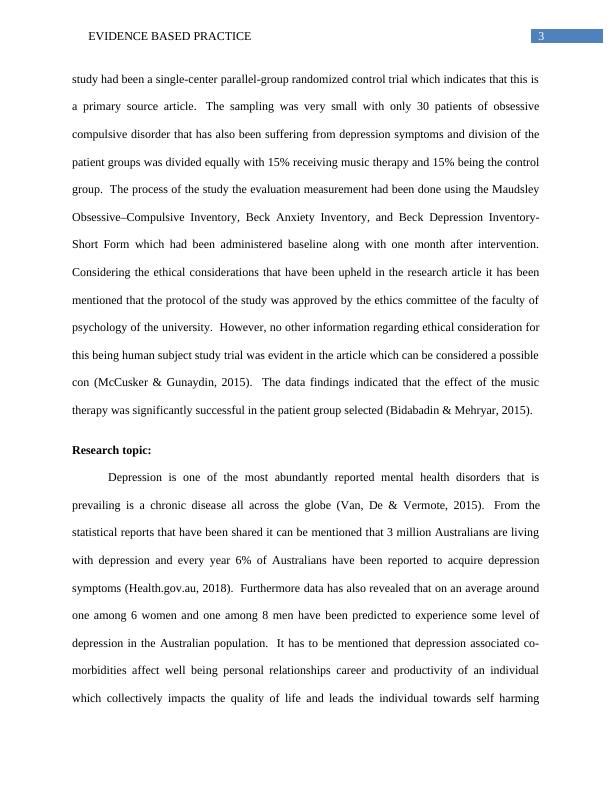Music Therapy for Depression: A Systematic Review
To conduct a systematic review of primary research, using a PICO (T) formatted clinical research question. To provide evidence from clinical research to inform changes or improvements to nursing practice.
13 Pages2833 Words182 Views
Added on 2023-06-04
About This Document
This systematic review evaluates the effectiveness of music therapy as an intervention for depression. The review includes a PICOT question, evaluation of research articles, future research recommendations, and annotated bibliography. The review concludes that music therapy can improve the quality of life and reduce symptoms of depression in patients.
Music Therapy for Depression: A Systematic Review
To conduct a systematic review of primary research, using a PICO (T) formatted clinical research question. To provide evidence from clinical research to inform changes or improvements to nursing practice.
Added on 2023-06-04
ShareRelated Documents
End of preview
Want to access all the pages? Upload your documents or become a member.
Evidence Based Research
|11
|2540
|478
Critical Appraisal of Cognitive Therapy for Psychiatric Disorders
|12
|2481
|306
Critique of the Article
|8
|2239
|100
Evidence Based Research on Indacaterol–Glycopyrronium for COPD Patients
|13
|3022
|214
Evidence based practice in mental health Name of the university: Methods and results
|12
|2720
|453
Does animal-assisted therapy help improve depression and agitation in the elderly with dementia?
|11
|2453
|193




